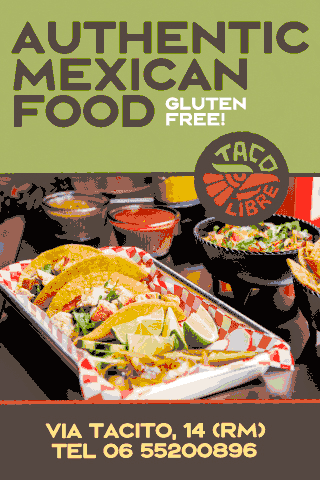Rip-off Rome: what to do if your restaurant bill is suspicious
Frequent rip-offs are the despair of tourists.
Every few weeks, social media and newspapers tell of yet another attempted – or even successful – scam somewhere in Italy, from Venice to Palermo, ripping off foreign customers in bars or restaurants with an exorbitant bill. Often customers suspecting they’ve been scammed are afraid to start a shouting match with the waiter if they’re not aware of the rules, or – even worse – if they are afraid their Italian isn’t up to the task.The trustworthy Italian website La Legge per Tutti (the law for everyone) has published a guide on what to do – and not to do – if you suspect that you have fallen into a tourist trap. A recent affair involving a restaurant in the centre of Rome reaped a huge number of “likes” on social media. Two frightened Japanese tourists were presented with a bill of €430 after ordering two plates of spaghetti with fish. To round up the price there was also the €80 tip, claimed by the restaurant and specified on the cash receipt (to avoid anyone thinking the owner, besides being a scammer, was also a tax evader).
What could the two women do? Someone commented on their post: "Why didn't you call the carabinieri?" and they replied, "Because we are inexperienced and we do not speak your language". Someone else asked, "Why didn't you leave without paying?" and they responded, "Because they prevented us from leaving."
What does the law say about it? What if the restaurant bill is too high? Does anyone who refuses to pay the bill really risk having to wash the dishes? Can he or she be detained by the security service? Let's see how a lawyer would behave, an expert on the law and sure of his business.
Let’s start by understanding what kind of misdemeanour is not paying the bill at the restaurant. As a rule, it is a simple contract default: it therefore comes under civil and not criminal law. Whoever sits in a bar or restaurant and places an order is concluding a normal contract, albeit verbally: in exchange for food or drinks, they undertake to pay the relative price later. A bit like what happens with a common sales contract, although in this case, in addition to the sale of food a labour service, the preparation, is also added.
Whoever neglects to fulfil a contract doesn’t commit a crime unless they had the intention not to pay from the outset and still pretended to be able to. In this second case, they are guilty of fraudulent insolvency.
On the other hand, it is different for customers who are given a bill that is absolutely disproportionate or exceeding their expectations: the initial good faith is undoubted. At most, one could moot a guilty attitude, not to have read the prices on the menu or not assessing the cost of the wine or failing to understand that the fish payment indicated on the list is "per hectogram" and not a price per portion. But for at least this simple fault it cannot be reported to the carabinieri.
So what happens to those who refuse to pay the bill?
Once clarified that the restaurant owner cannot call the carabinieri or the police to force the customer to pay, what weapons does the owner have to recover their credit? They can at most appoint a private lawyer to request an injunction in court. This is a procedure that anyone can follow who is in possession of an invoice for a service rendered and not fulfilled. This however is a normal civil case, with no repercussions on one’s criminal record.
Moreover, the debtor notified of the sentence against them can present an appeal within 40 days, also through a lawyer and in the same court, to assert his claims.
And does a customer who refuses the bill really have to wash the dishes?
Let’s imagine this case. You enter the restaurant, eat your meal and then ask for the bill. The bill is too high and you don't have the money to pay for it. At this point, there are two hypotheses.
If you believe that the bill, although high, is correct, you can ask the restaurateur for a day to collect the amount and pay. No matter how angry, he can neither denounce you nor prevent you from leaving. It is true that you will be formally "in arrears" or "late" – the services must be paid on the day of their expiration – but for 24 or 48 hours nobody will be able to tell you anything, nor is there time to act against you. Moreover, the only consequence – again from a civil law point of view – for late payment is adding on the interest. And in a few days that can only amount to 10 cents or so.
If, on the other hand, you believe that the account is incorrect and you want to dispute it, you can refuse to pay. At this point, if the restaurateur blocks you at the entrance, you can call the carabinieri, because forcing a person not to pass can amount to the crime of "private violence" or even "kidnapping".
So you wonder: how can I call the carabinieri if they won't let me out? Try finding a secluded corner of the restaurant, saying you are calling a relative who will bring you the money for your "redemption" and contact the police instead.
It is, however, within the rights of the restaurateur, if he lets you leave, to ask for your name and address. He will need them to have his lawyer send you the injunction. At that point, you can give it to him, safe in the knowledge that no one takes out an injunction for a few score euros, and that it’s improbable that anyone would go to court to recover a credit deriving from a scam.
If you do receive an injunction, you can file an appeal and, before the judge, you will have a chance to defend yourself by calling the guests who were with you to testify. They will be able to confirm which dishes you ordered, so that the magistrate can review the price according to normal usage.
But be careful: if your complaints are based only on the quality of the food, it will be more difficult to raise objections. À chacun son goût. But it’s another kettle of fish if you were served food that was passed off as fresh when it was in fact frozen. Failure to indicate deep-frozen ingredients on the menu is a criminal commercial fraud.
Here are some of the rights of anyone who entering a restaurant or café; you may not be aware of some of them.
Once you have taken a seat you are not obliged to consume anything. If, after looking at the menu, you realise that the prices are too high or the dishes aren’t to your liking, you can get up and leave. If you book a table by phone and then cancel, you can’t be asked to pay a penalty unless this was explained to you at the time of booking.
The receipt doesn’t have to indicate the price for each individual dish consumed; it may be for a total sum, but it’s still your right to ask for a detailed bill. And if you don't find the classic asterisk on the menu that indicates frozen ingredients, you can report the restaurateur for commercial fraud. The restaurant menu must also list allergenic products.
Finally, if the restaurateur won’t let you leave because you don't want to pay, you can call the police or the carabinieri on the emergency number 112.



















